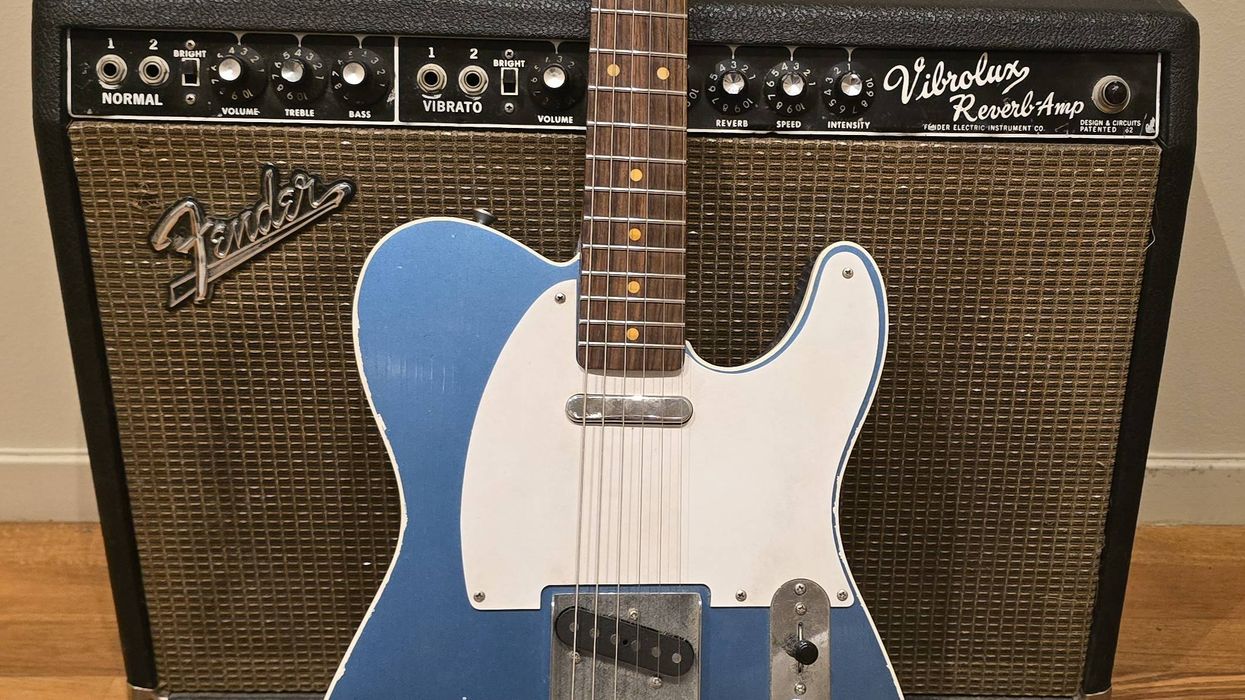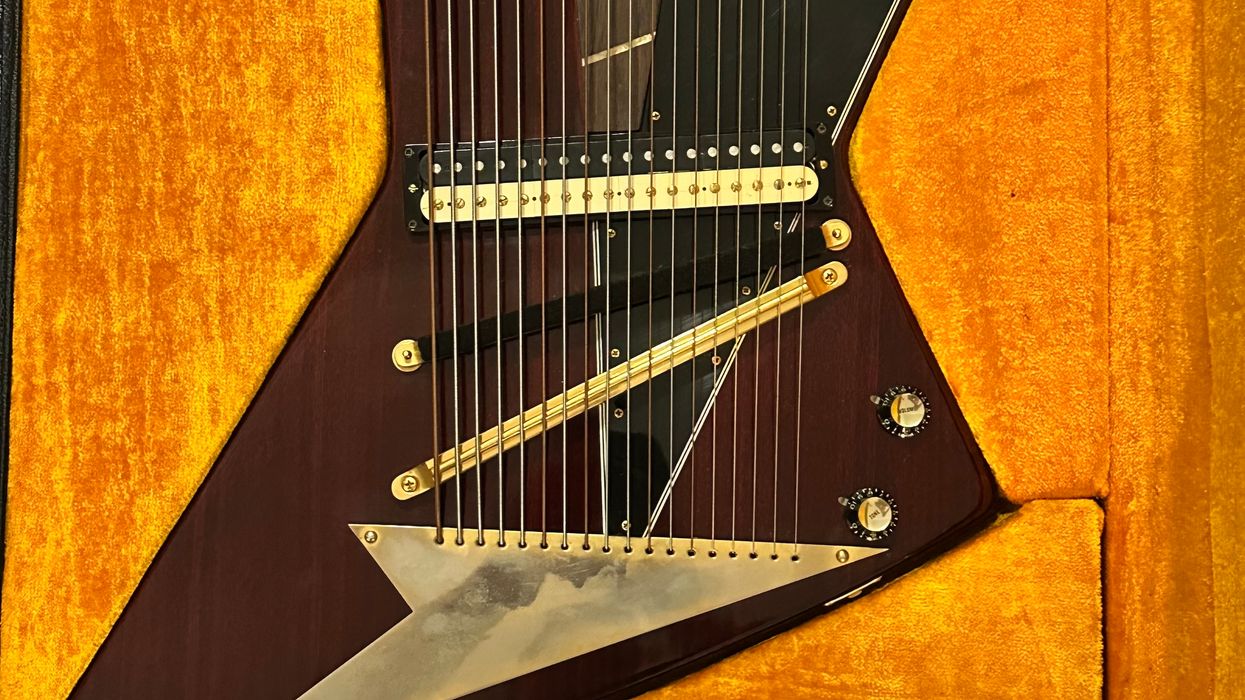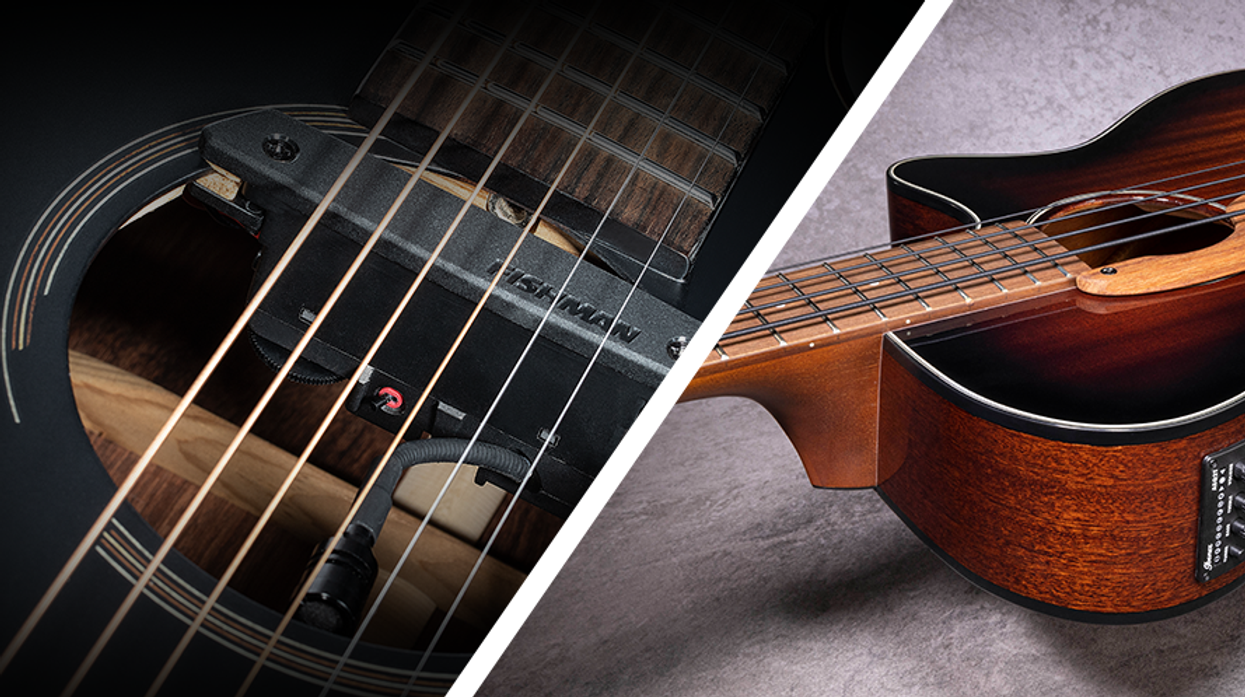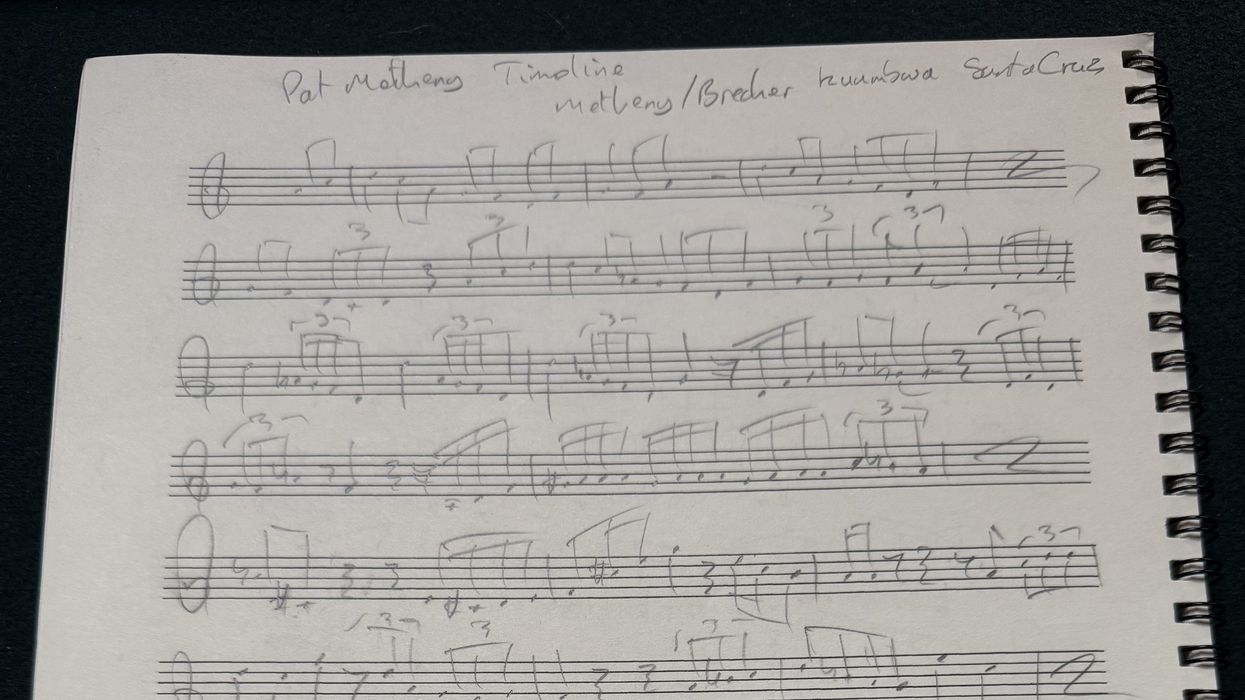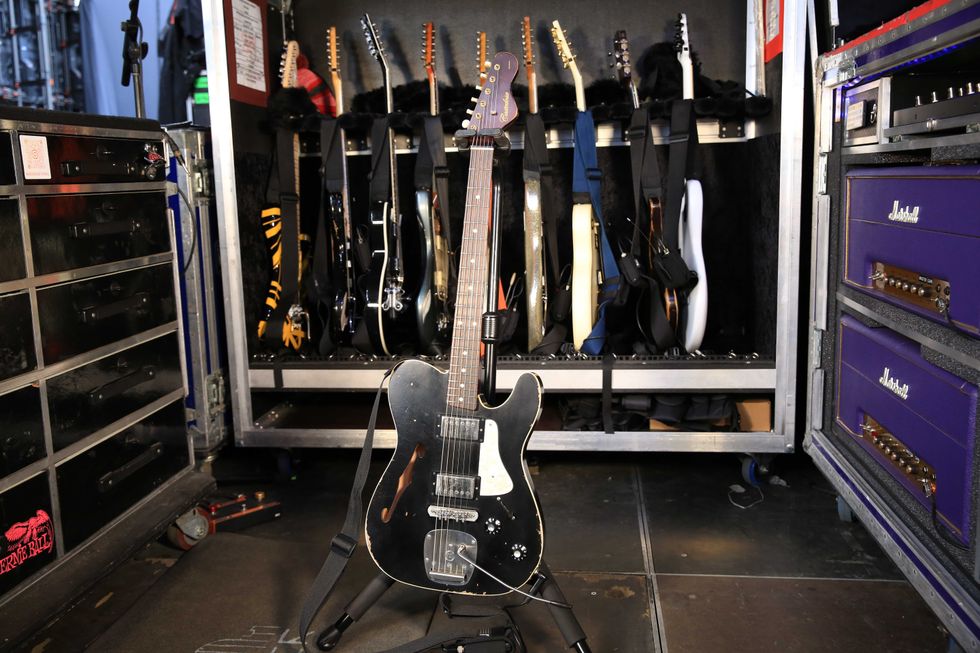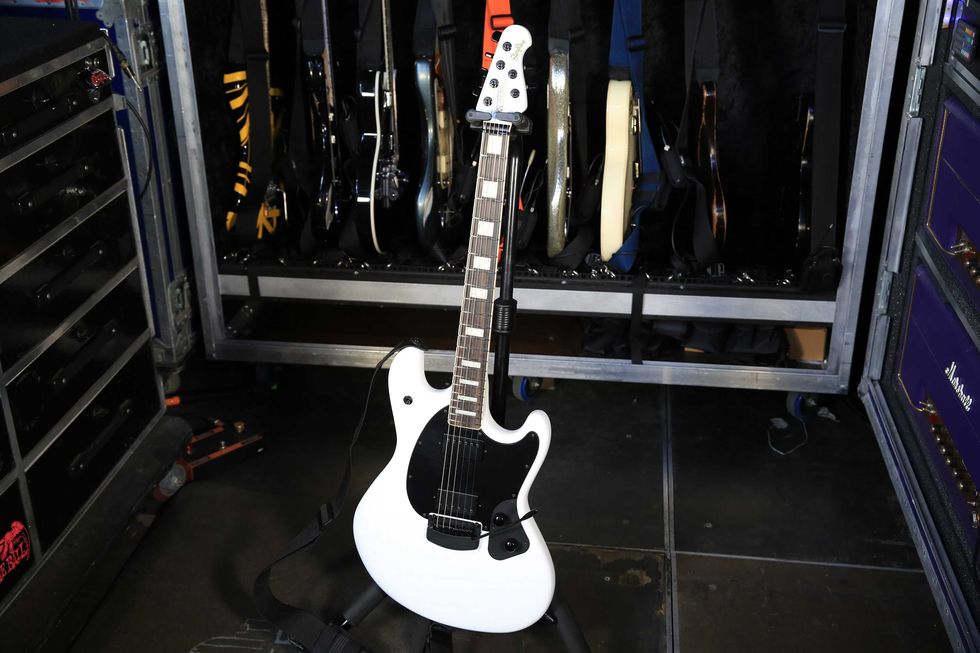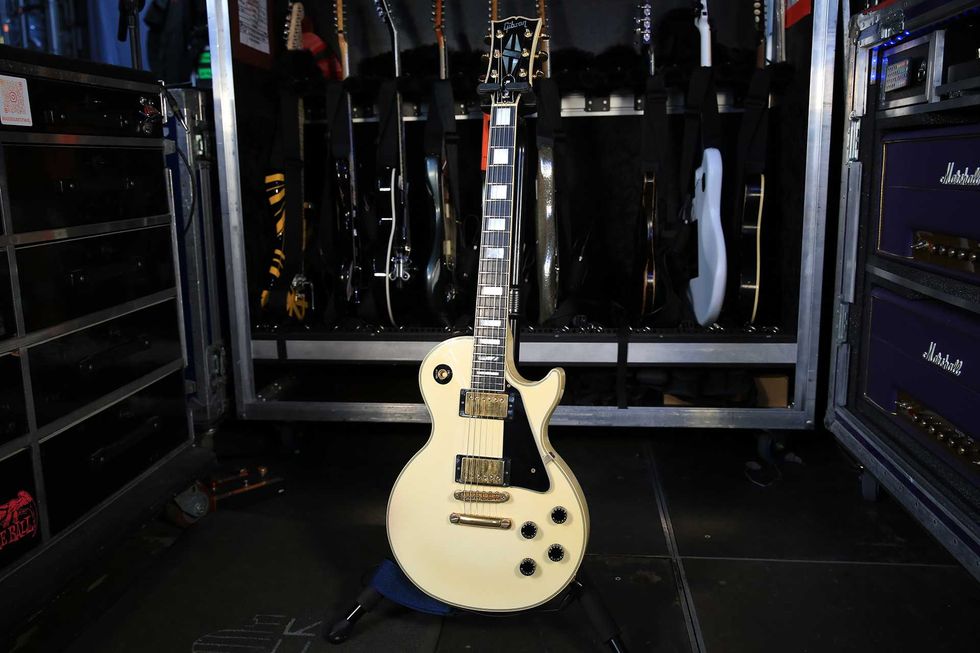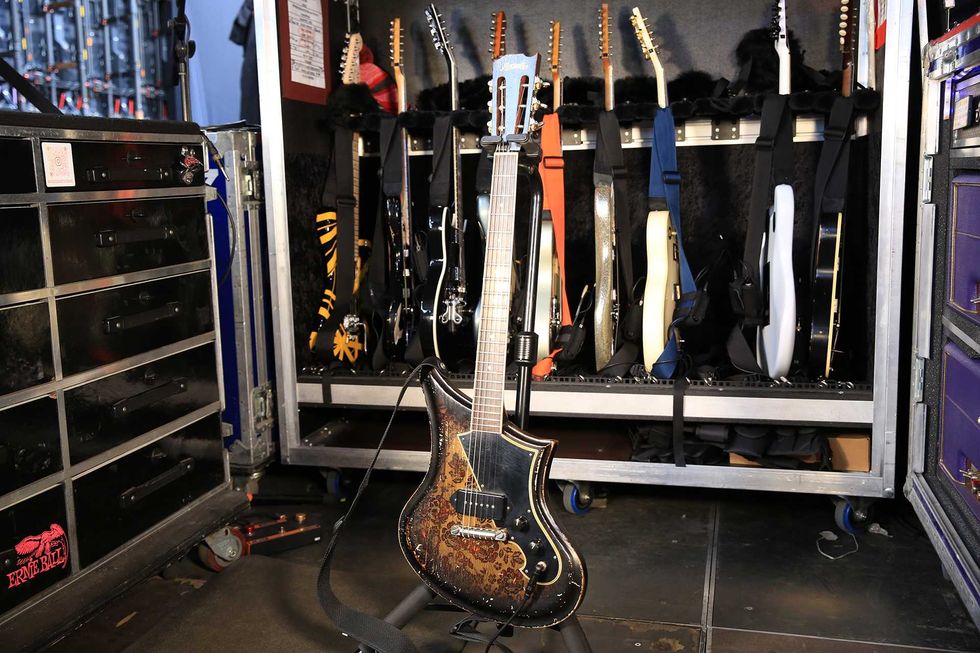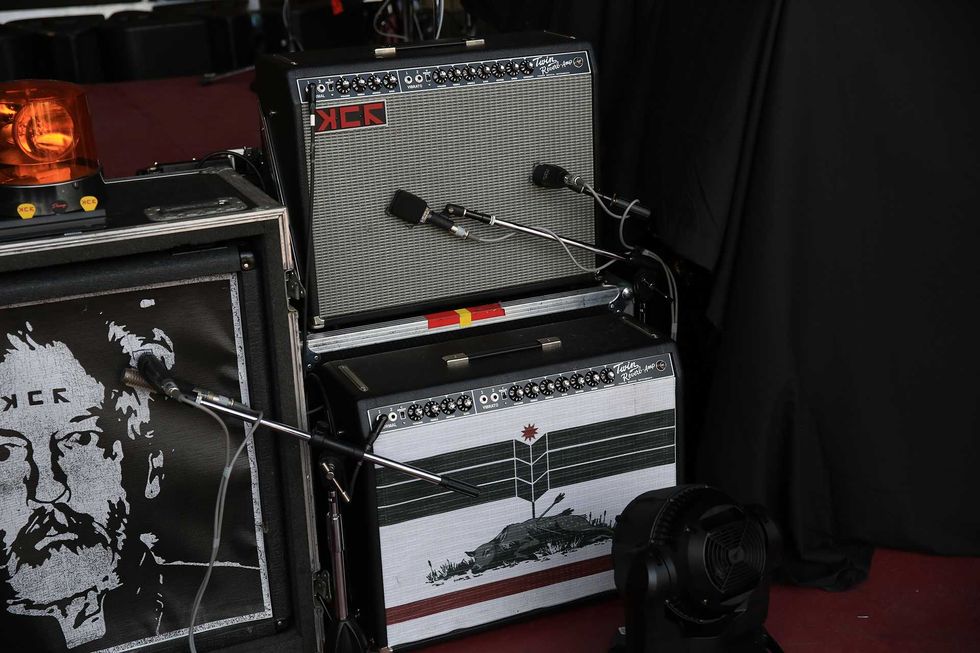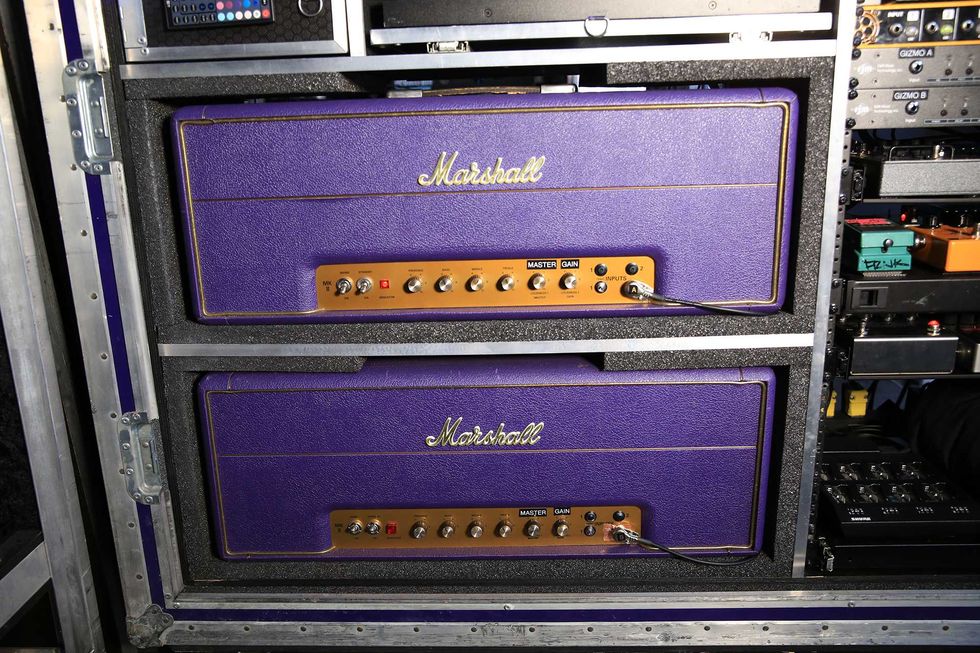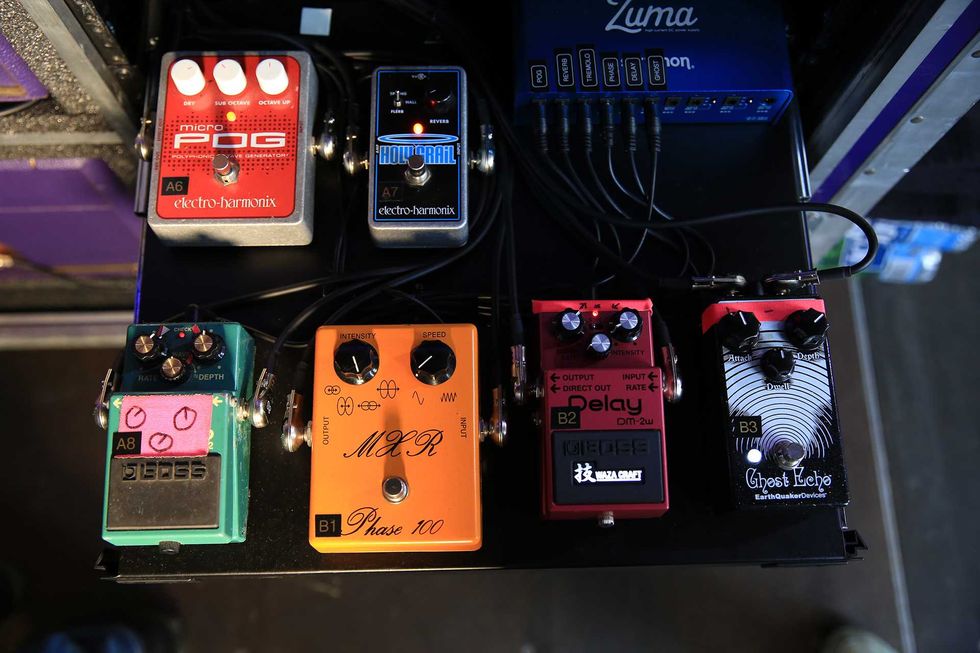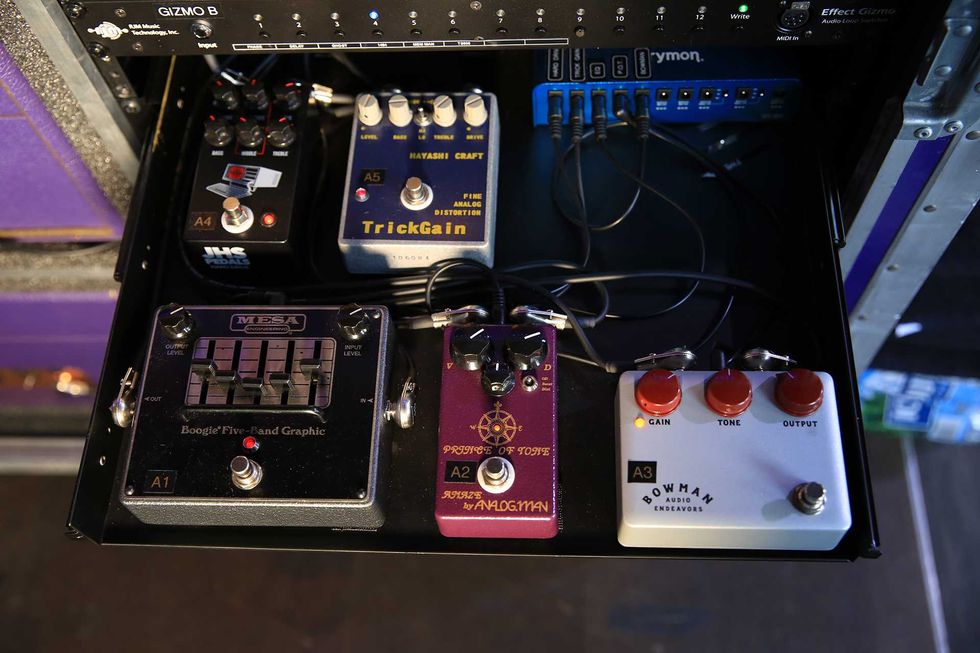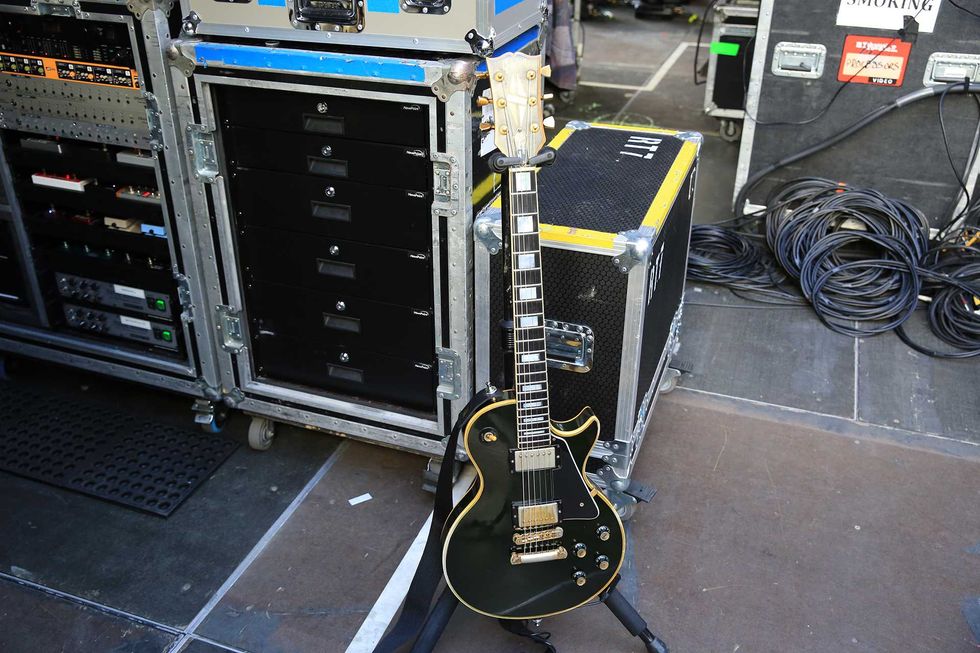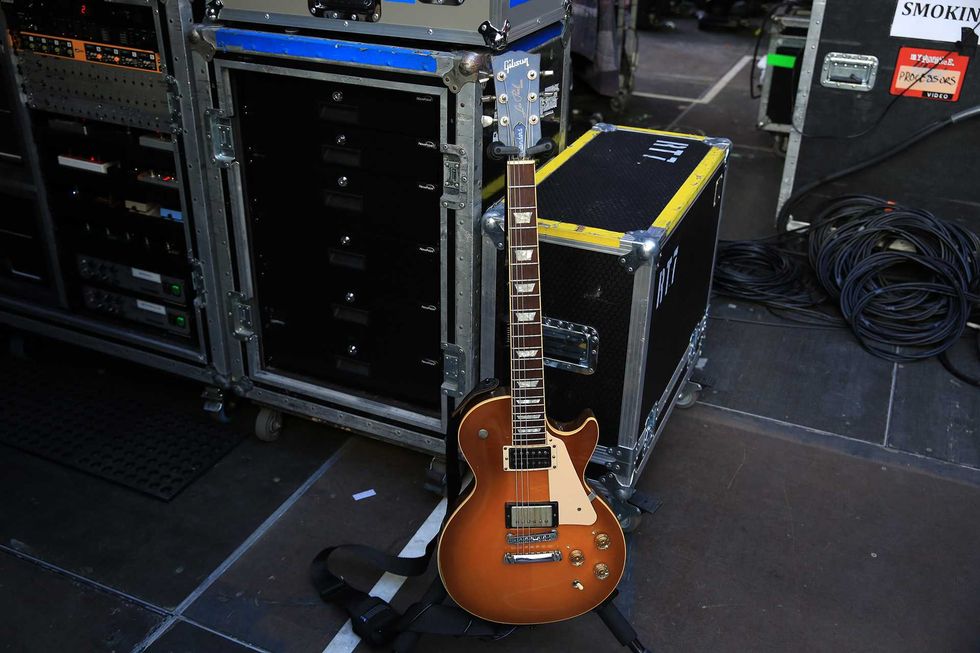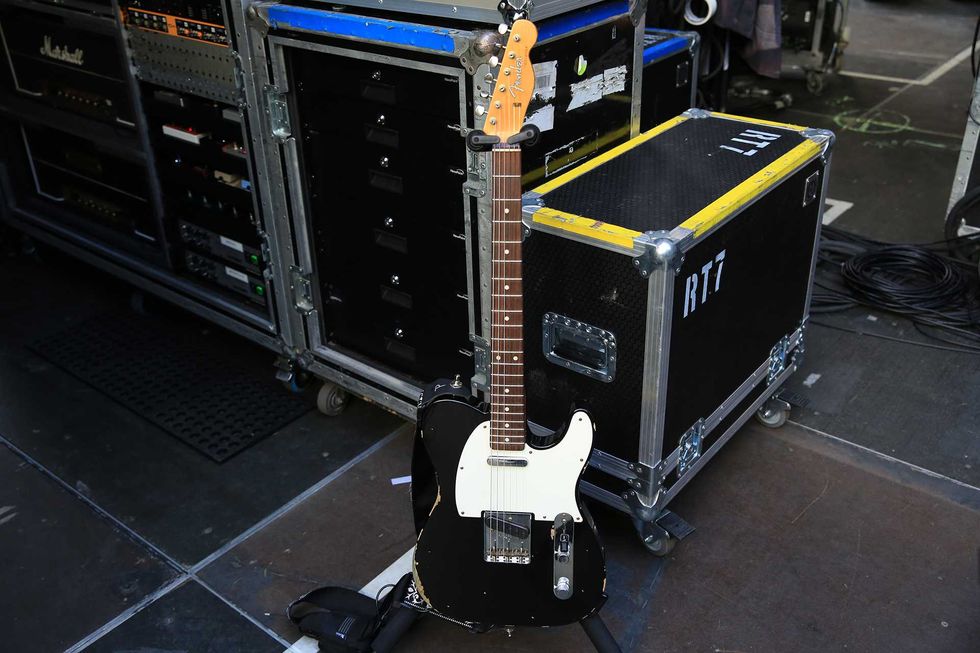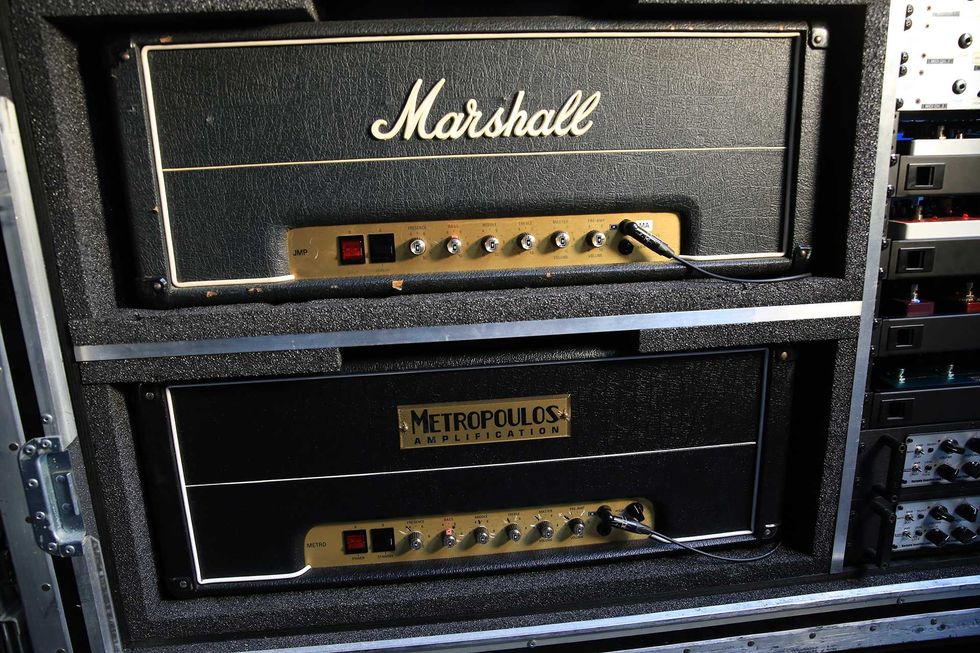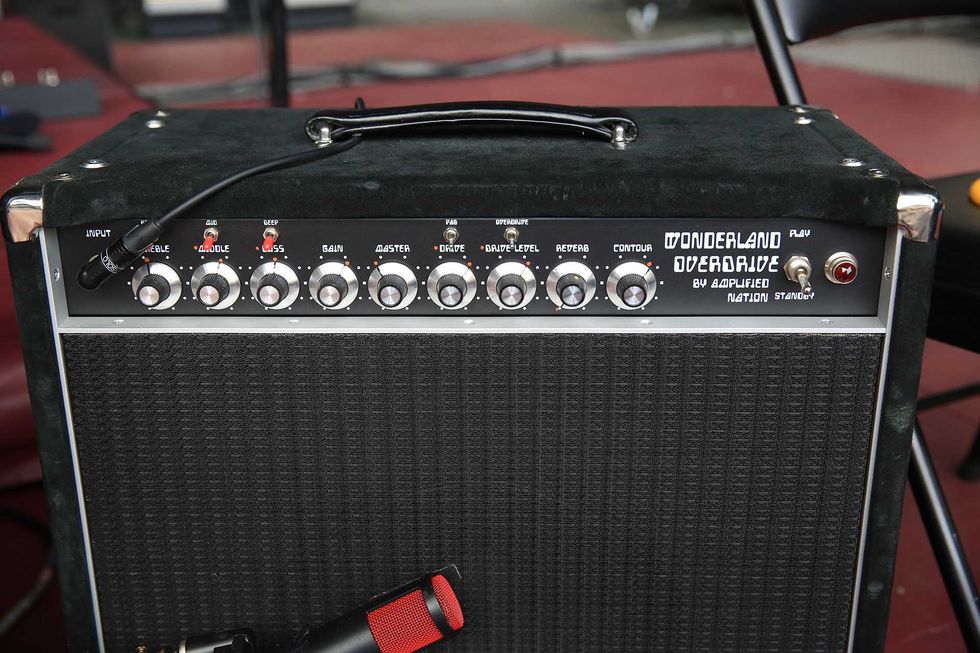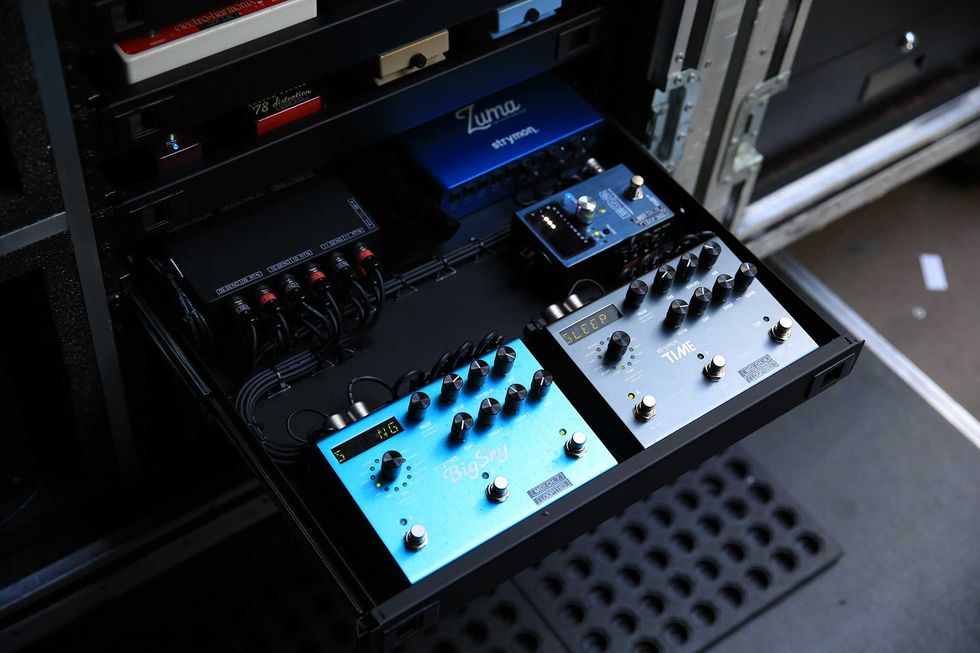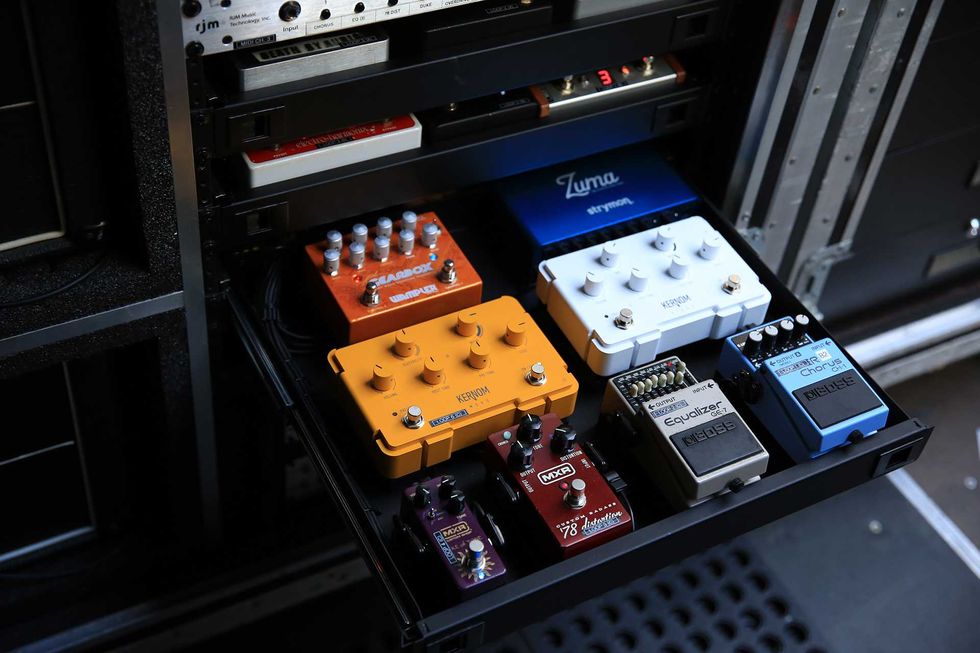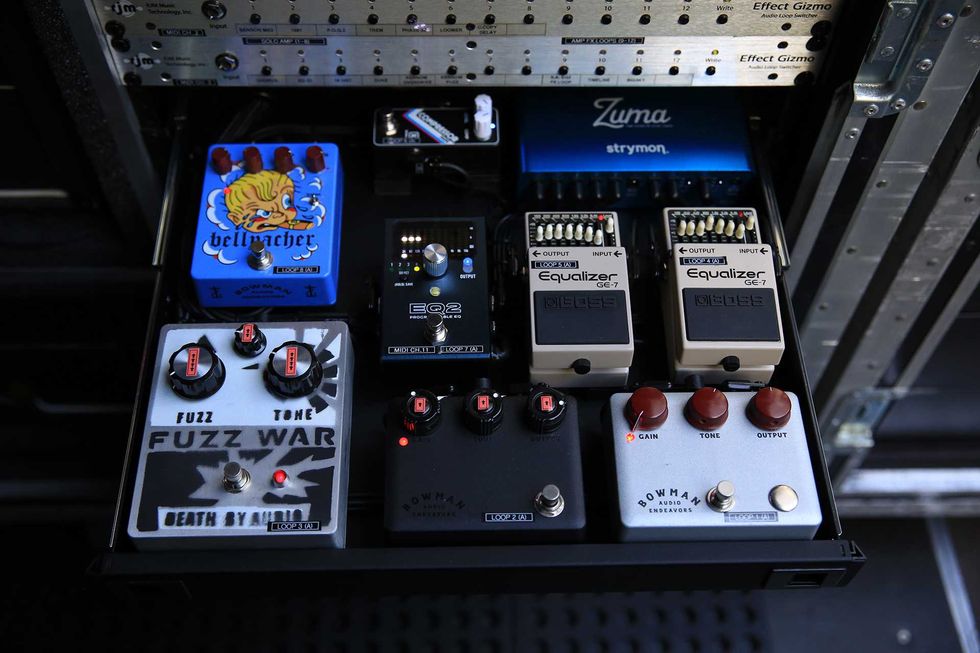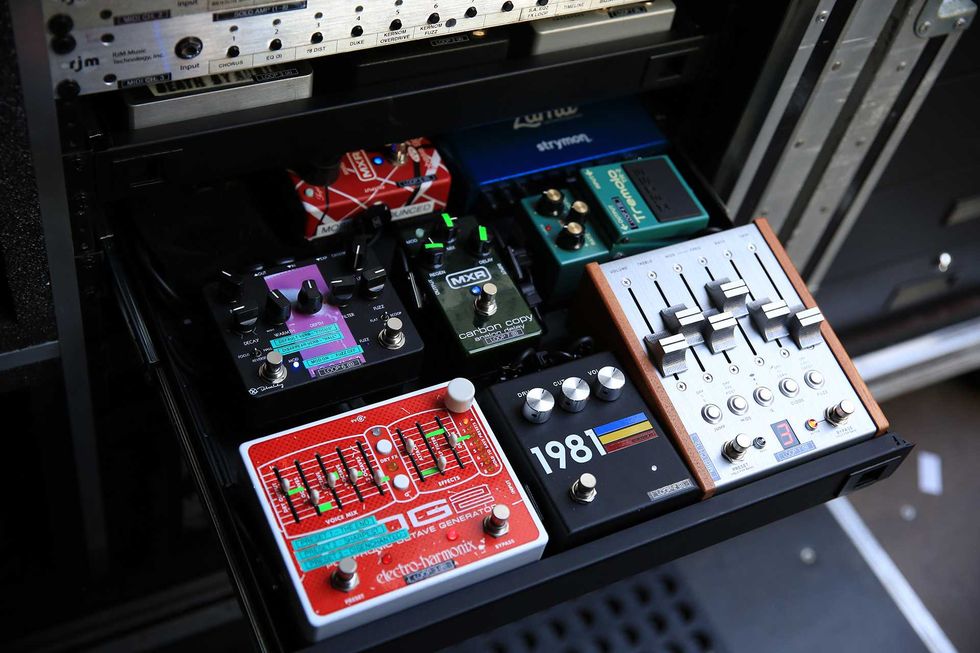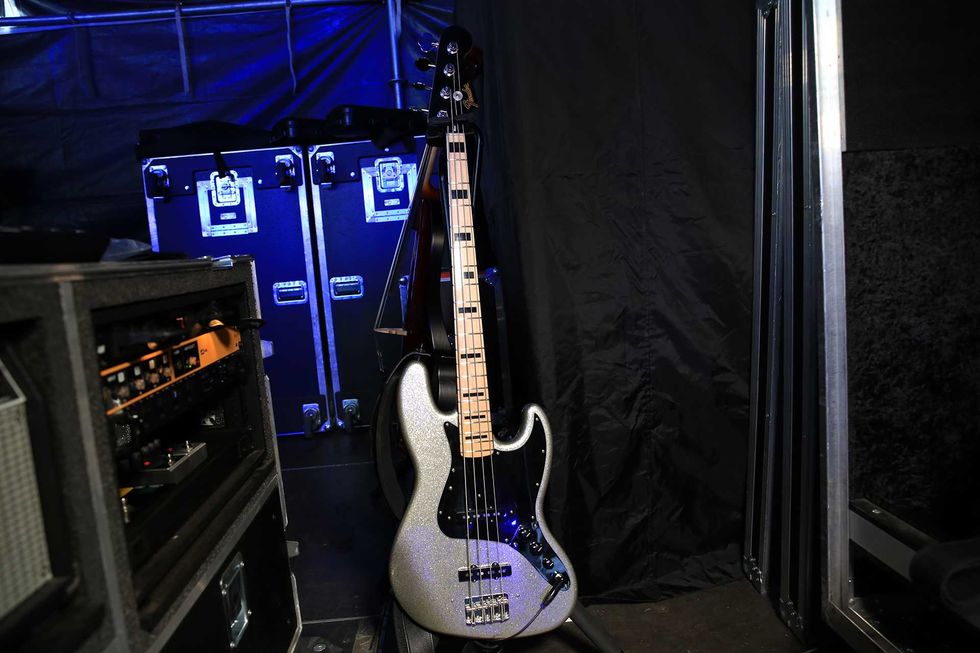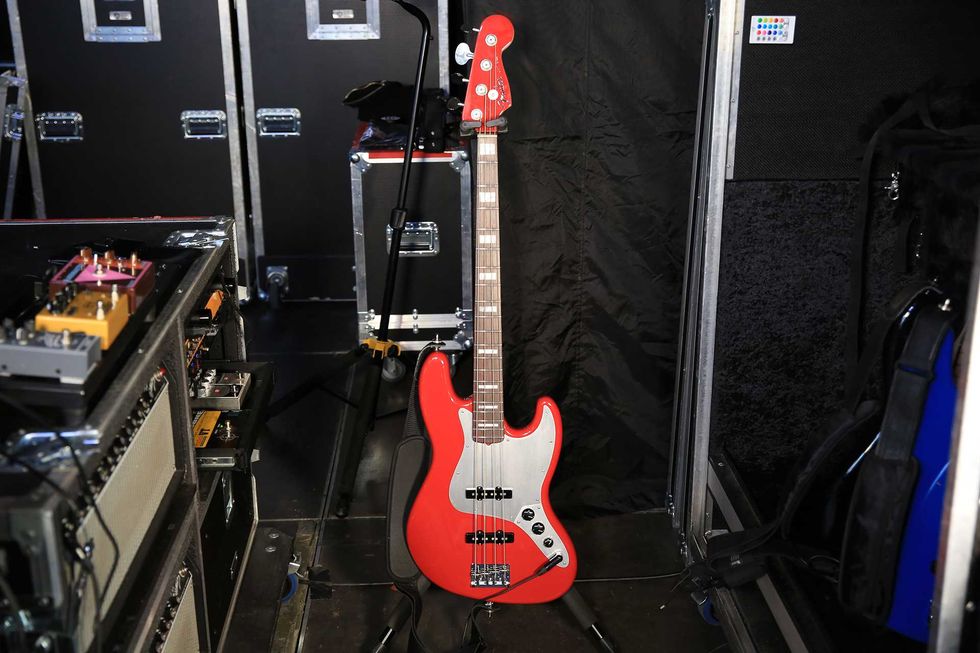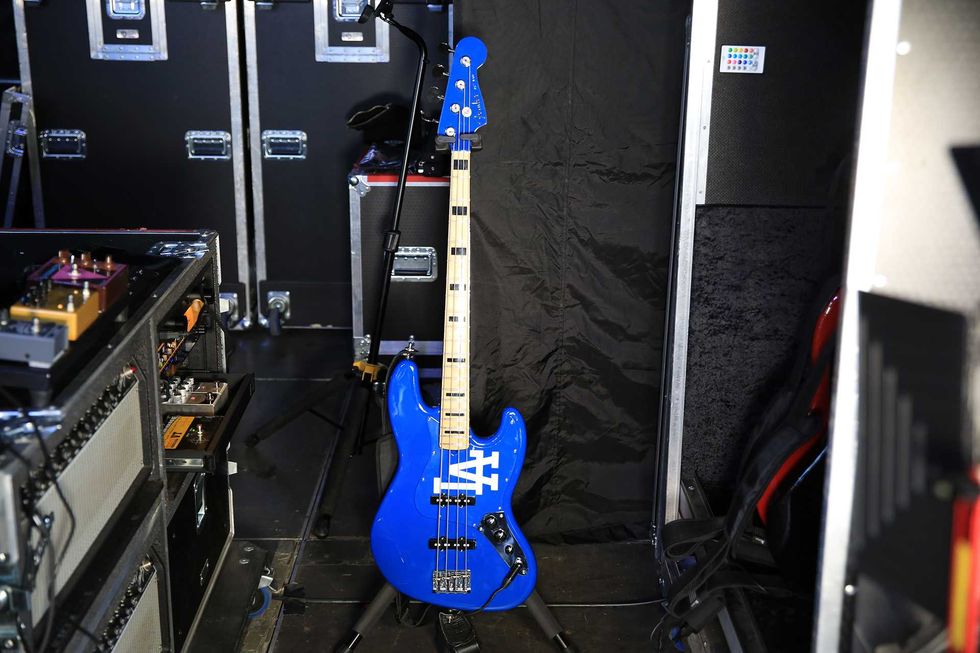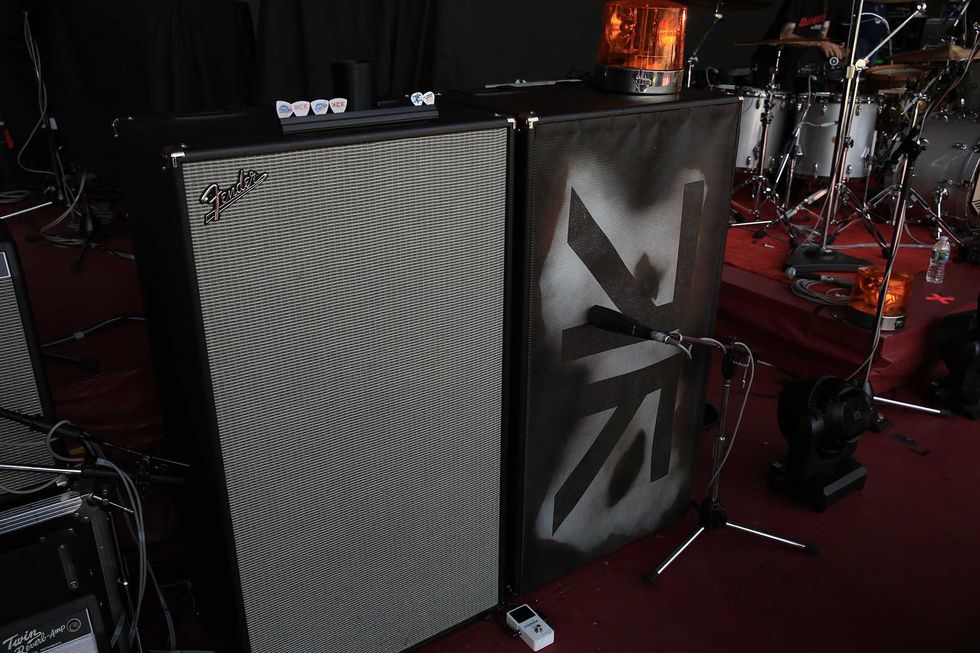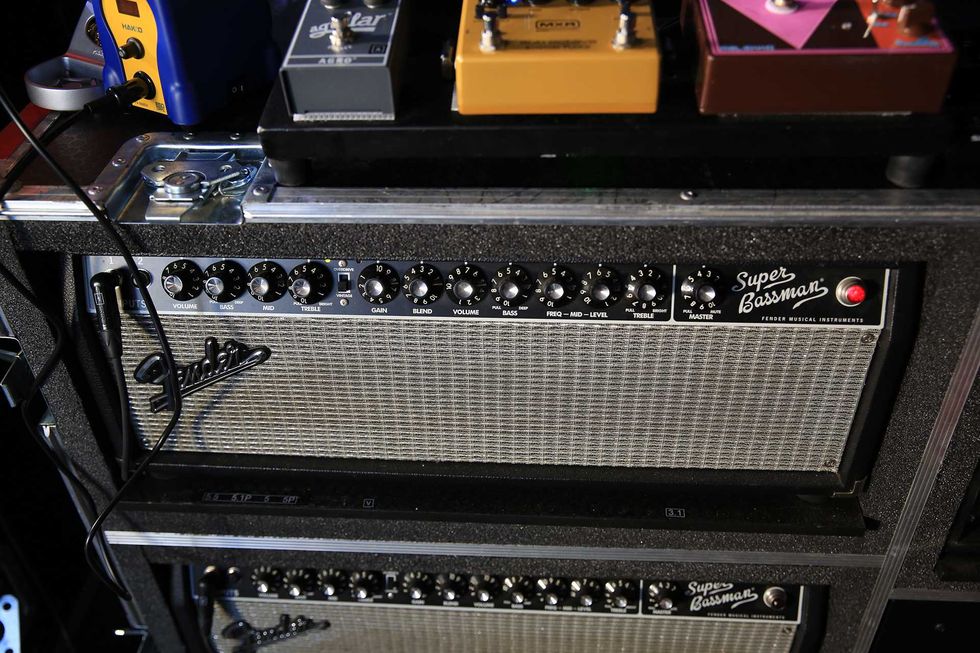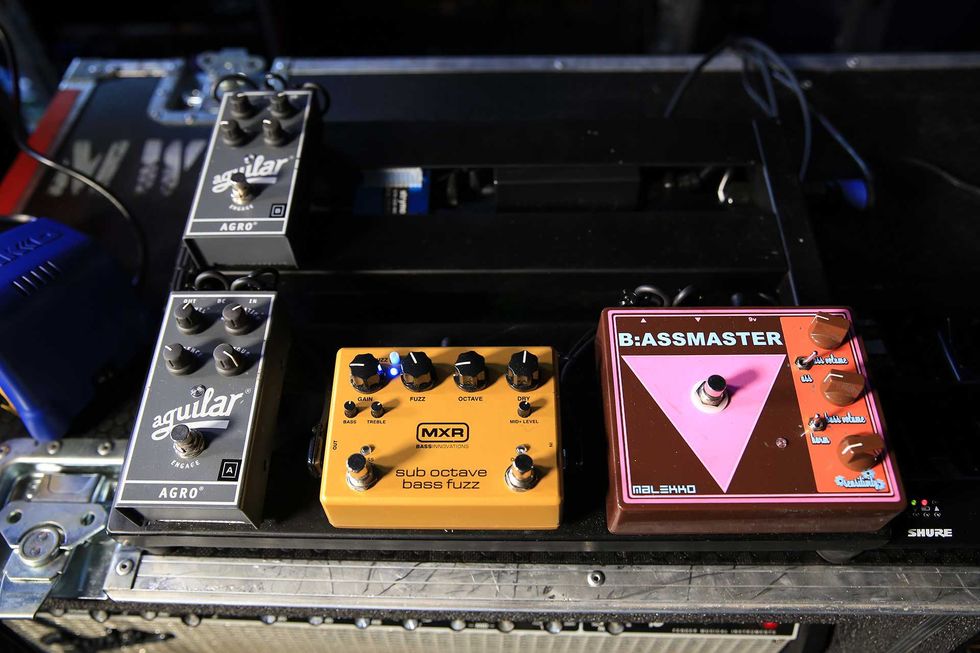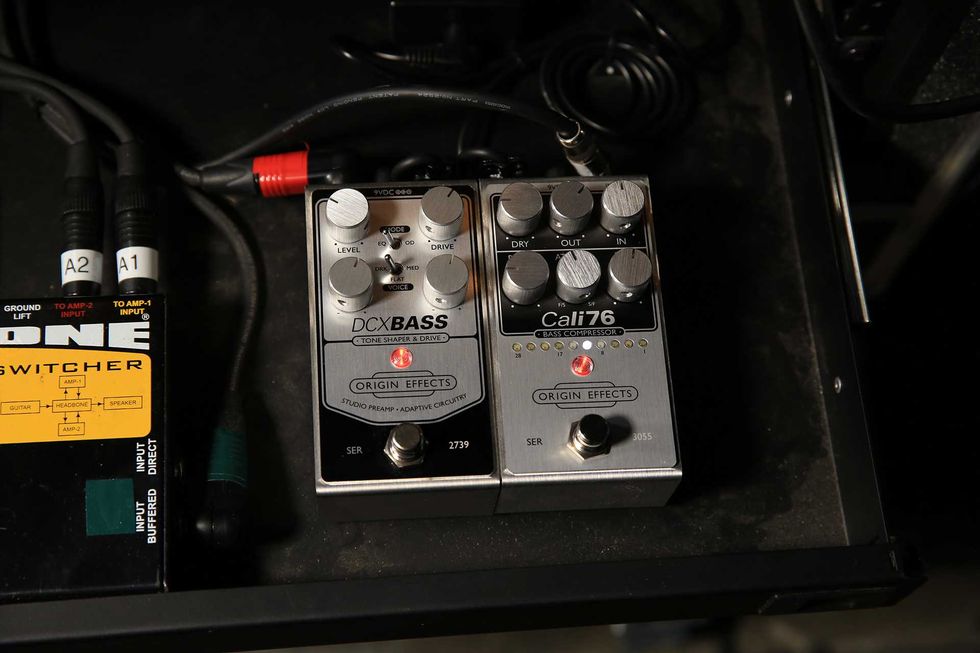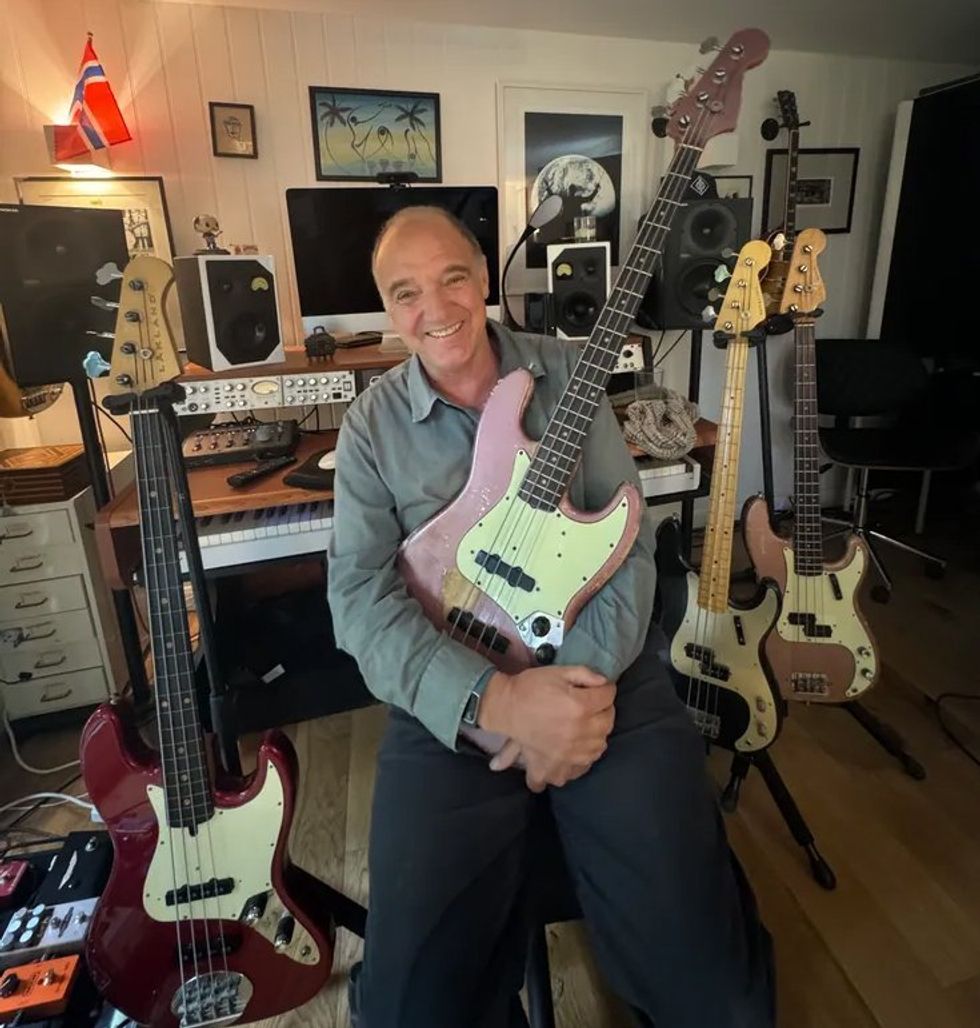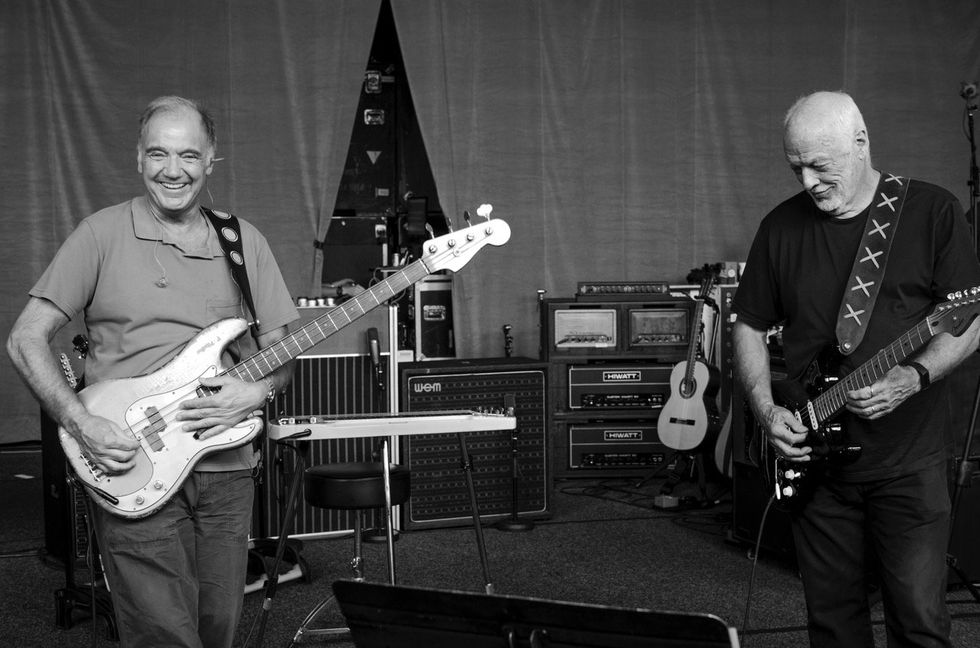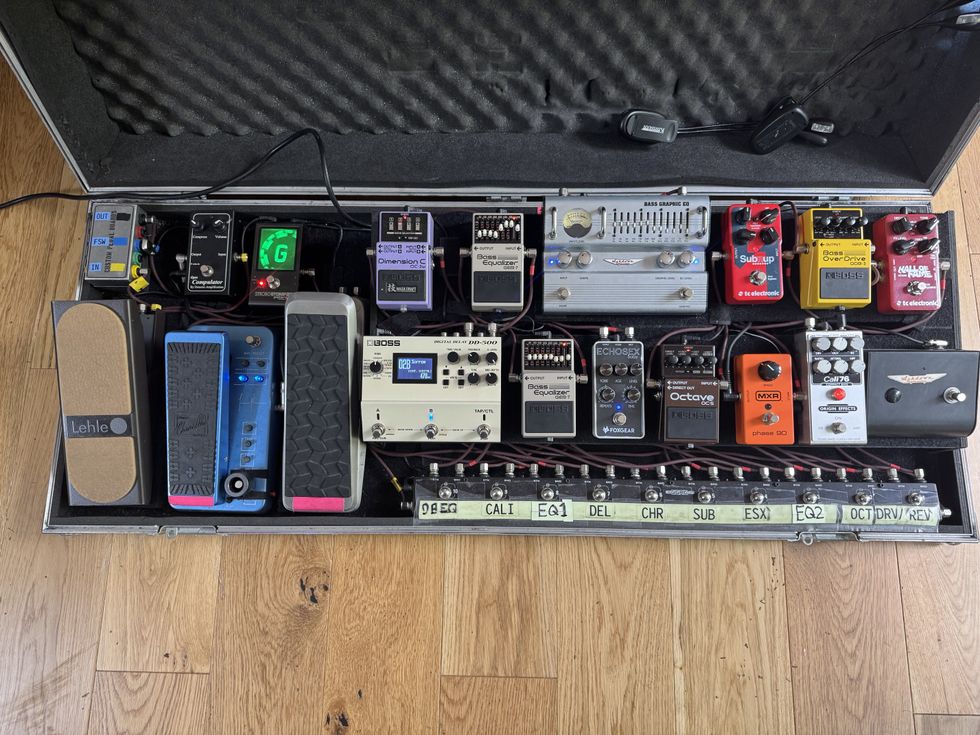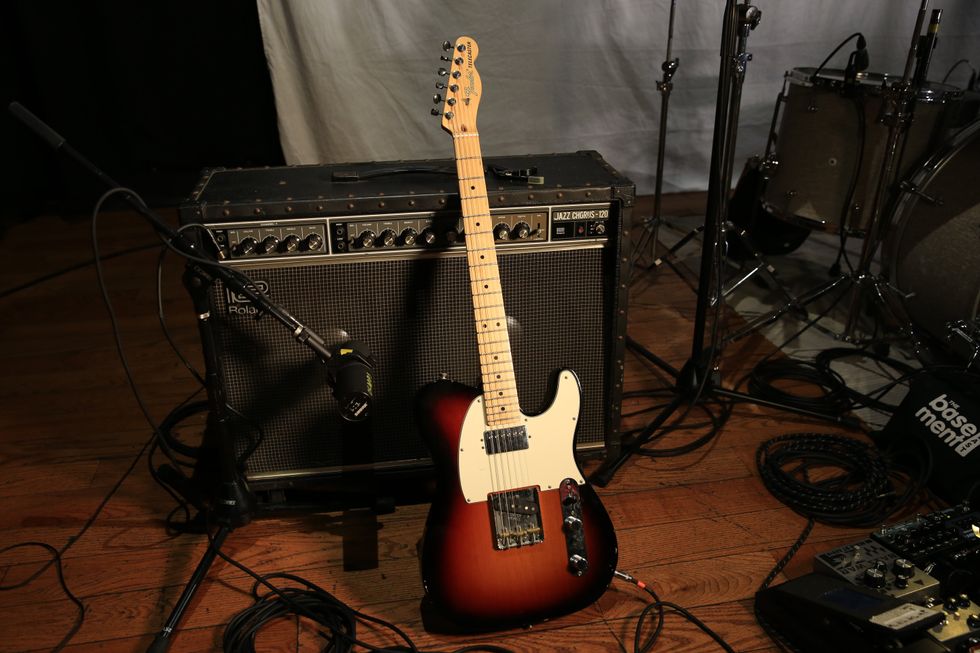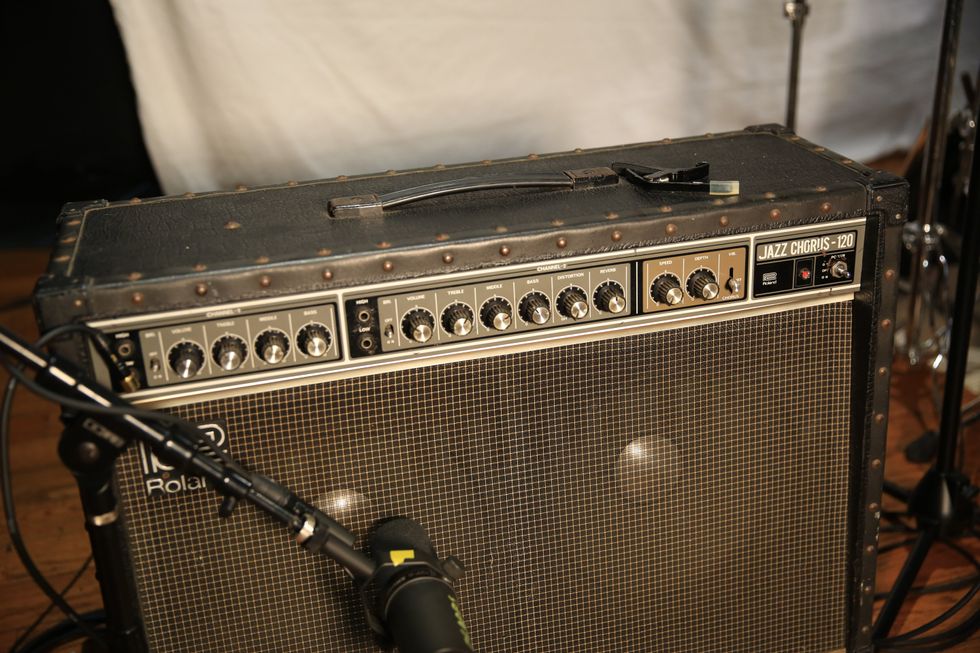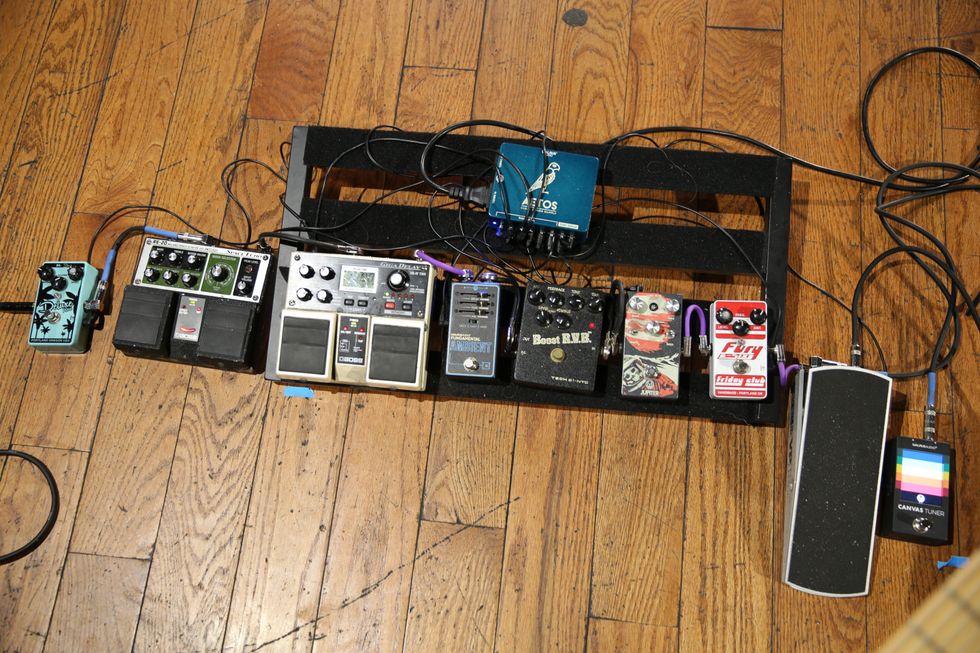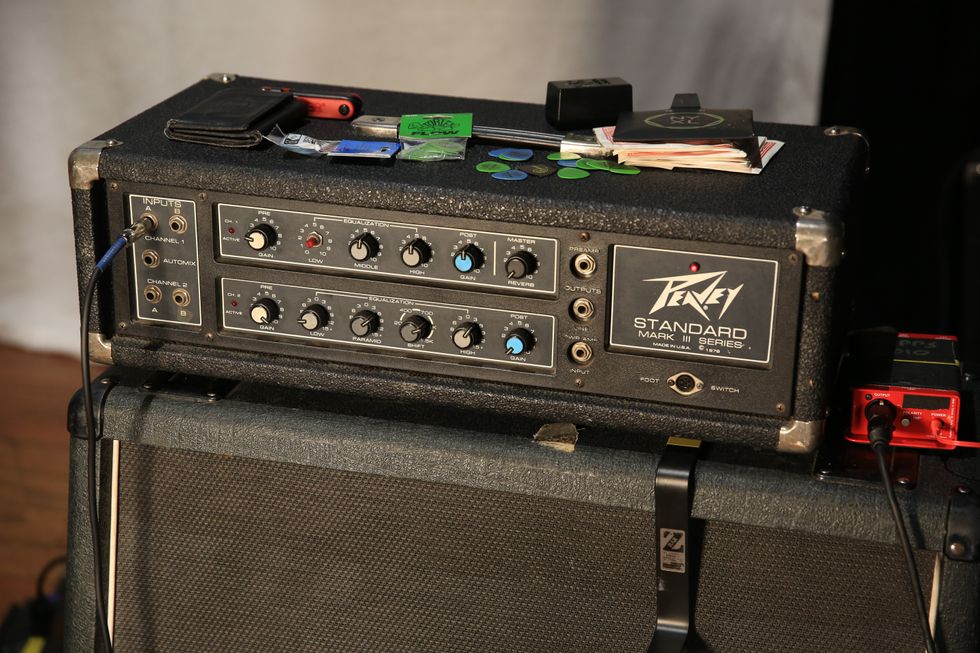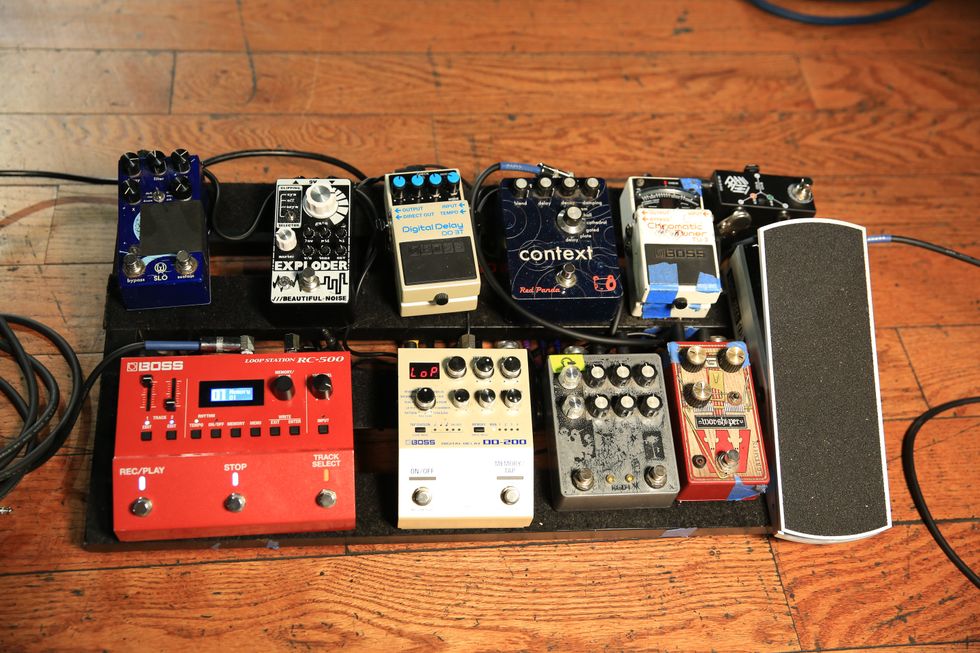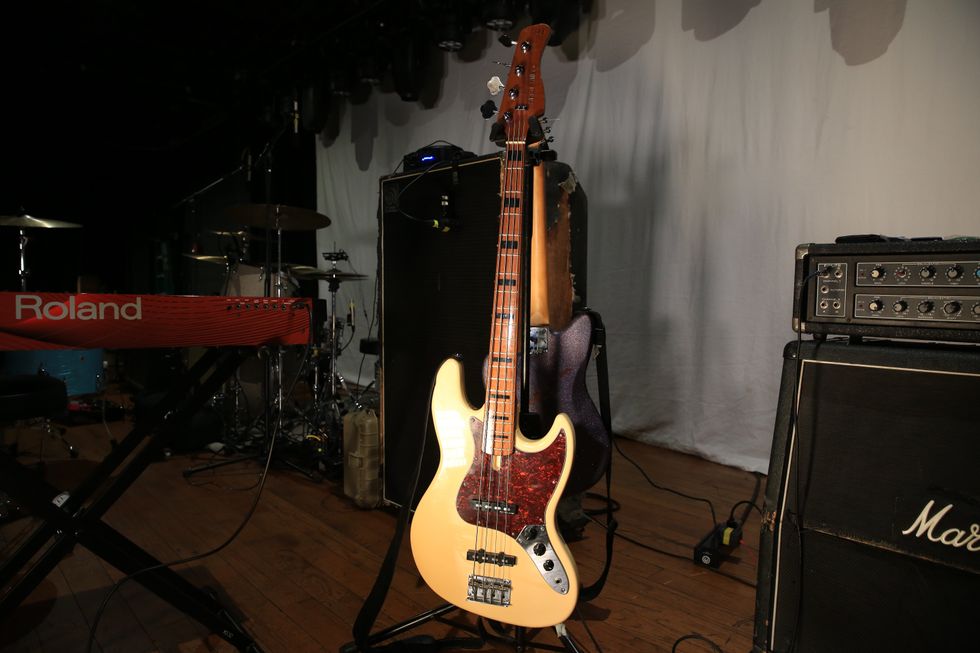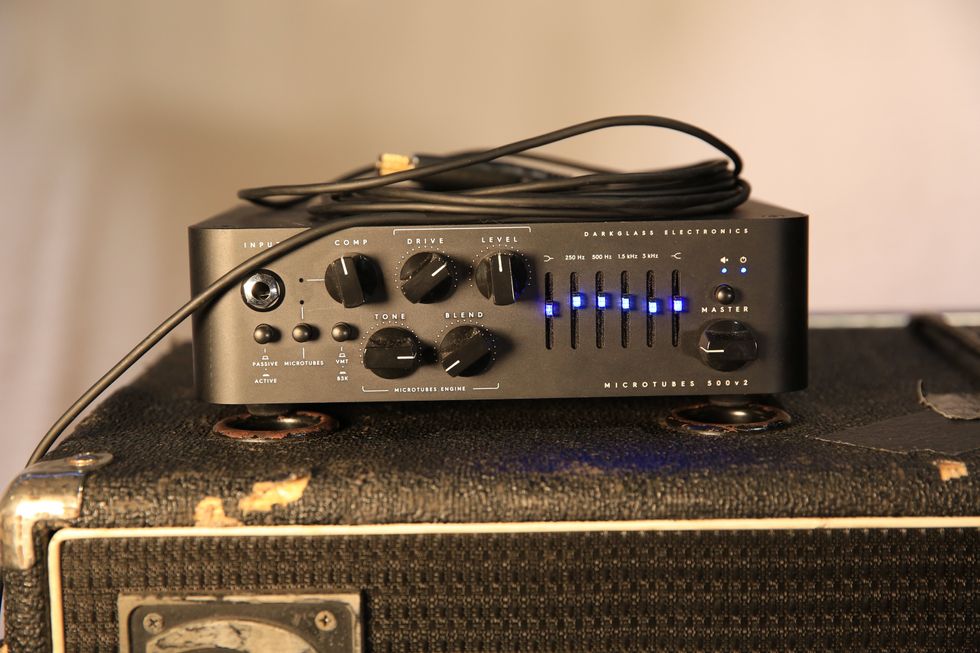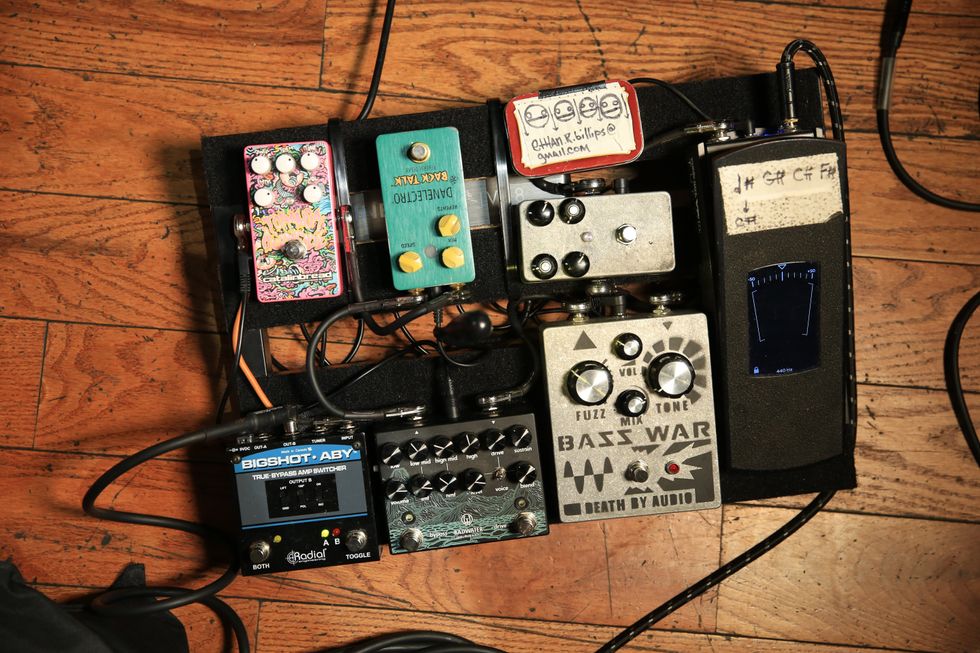When I first started exhibiting at trade shows in the early 2000s, the bigger shows always had a number of booths packed with basses and guitars of all shapes and colors. The staff at said booths typically looked bored, and they rarely had any interested customers, but they also didn't seem to mind. If customers did show up, they rarely picked up an instrument. Most often, there wouldn't even be an amp to play through anyway. It took me a while (in my admitted greenness) to understand this business model.
These are, in fact, examples of the salesforce for the “ghost-building industry," a term I learned much later. Because so much shopping now happens online, booths like this have slowly been disappearing, but the businesses have continued to grow even more. Ghost-building is nothing immoral, and it's quite common in many branches of commerce, but since the music business is such an emotion- and image-driven industry, it might feel slightly fishy and fraudulent to some.
Disclaimer: There are no brand names mentioned in this column. You can certainly try to search for information, but please remember that not everything on the web is true!
It's not a secret, there are no official statements, and it's even harder to get any numbers for obvious reasons, but rumors are that more than 90 percent of all basses and guitars are made by just three manufacturers. There are competing brands made on the very same CNC machinery and likely from the same pile of wood. Some die-hard fans might be shocked to learn that their favorite instrument manufacturer is just an office that orders overseas from the cheapest workbenches available. Sure, it's easy to bash this kind of collective manufacturing as exploitative, and a hindrance to innovation and diversity. At the same time, however, it has brought down costs and raised the quality of low- and mid-priced instruments for all of us over the last two to three decades.
Ghost-building isn't just limited to high-quantity production. If a particular brand's prominent endorsee isn't happy with what the production line offers, the easiest way to turn it into a win-win scenario is to get a one-off, handbuilt replica made by a custom or boutique builder.
This scenario, in my opinion, isn't as common among us bassists, as we are usually not a band's front person. But to the front people out there: Do you know of a custom or boutique microphone for vocalists? Do they exist? I digress, but let me ask a different question to players out there: Do you have an issue with the aforementioned production methods? I personally don't, but within certain limits. I do think endorsers promoting their “custom-built" guitar without mentioning it's not a standard-brand, XY model are lying to their fans. Call it what it is, or don't talk about it at all. Also, a brand producing 99 percent of an instrument overseas should not be permitted to slap a sticker proclaiming, “Made in U.S.A.," or whatever place it doesn't truly originate from. It's just not being loyal to their customers. The terms “designed" or “assembled" can be a shady cover-up, if they aren't also followed by their actual, real origin.
Every builder, of course, does some outsourcing to a certain extent, and no customer would really expect any luthier or big brand to manufacture all the parts (Photo 1) on their own. It would be silly to expect them to make their own tuners, hardware, cables, output jacks, pots, strap pins, etc. But in my view, the neck, body, finishing, fretting, woodwork, and assembly are a different story.
All that said, there is something to learn and accept from the customers' perspective: adjust your expectations. Like anything, if you expect to receive a certain exclusivity, you will have to pay a certain price. Otherwise, you need to be good with mass-produced products. There is nothing wrong with products of this nature at all, but please don't call a mass-produced, new model an “XY Custom" or “XY Vintage." They're neither special nor old.
Ghost-builder booths are more of a rarity at music fairs today, because it's much easier and cheaper to share info and renderings online. Of course, this business model is also available for lower-quantity builders. Why shouldn't they also take advantage of the same services as the big boys? But this definitely blurs the line between a local, handmade instrument and an assembled kit. Most small-scale luthiers, who market things like select tonewoods and tap-tuning expertise, are using CNC today, which is totally fine and widely accepted. But is it still a handmade instrument if they're outsourcing fully equipped, fretted necks?
Think about it: The big competing brands might be okay with getting builds from the same pile of wood, but what's left as a unique selling point for a “handmade," boutique instrument if a component is made on the same production line as the bigger brands? Just curious.




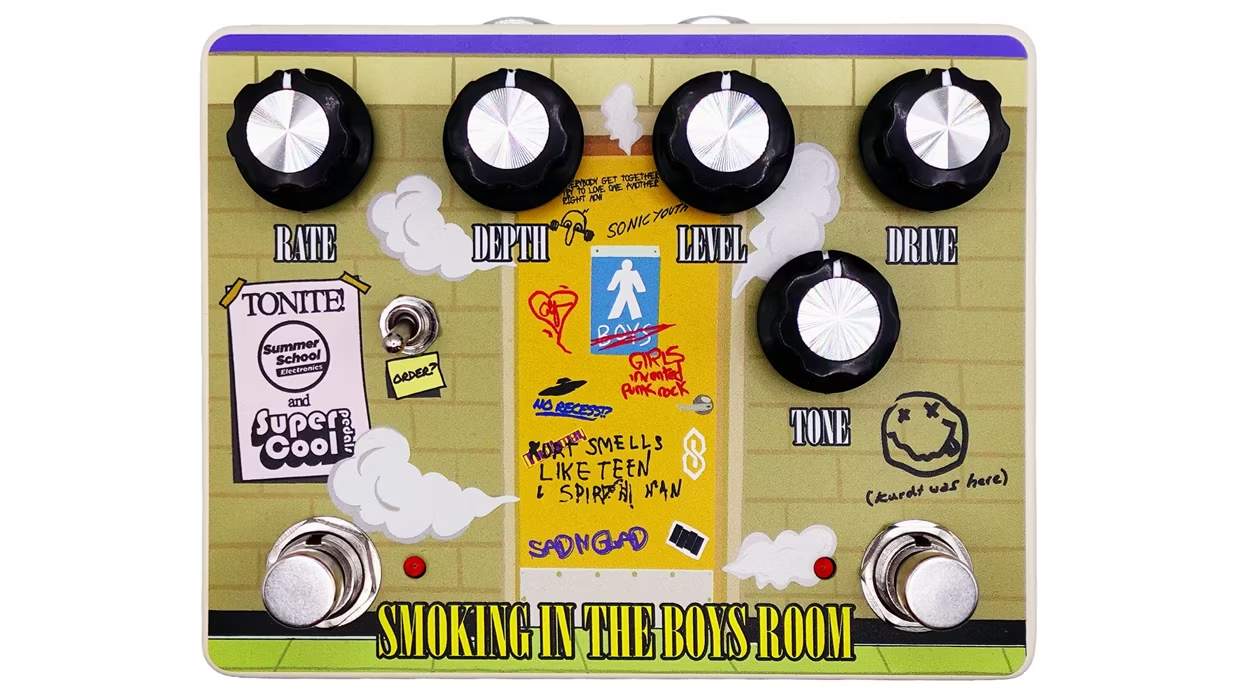

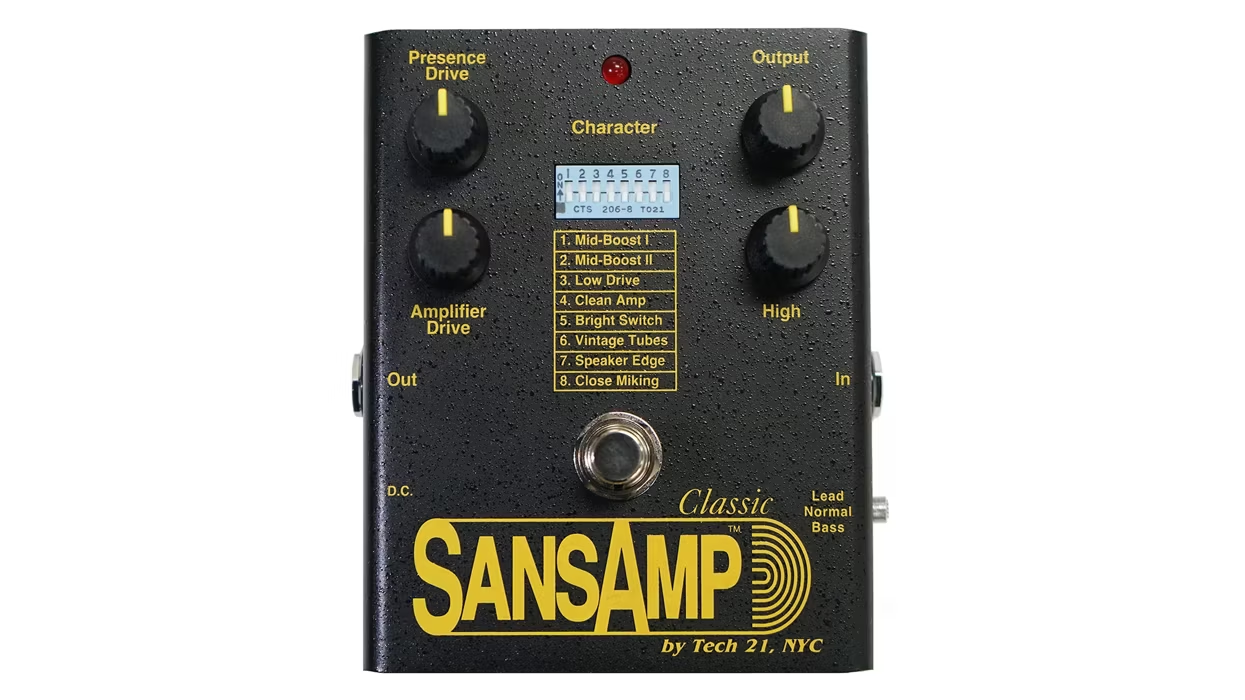

![Rig Rundown: AFI [2025]](https://www.premierguitar.com/media-library/youtube.jpg?id=62064741&width=1245&height=700&quality=70&coordinates=0%2C0%2C0%2C0)












 Shop Scott's Rig
Shop Scott's Rig![Rig Rundown: Russian Circles’ Mike Sullivan [2025]](https://www.premierguitar.com/media-library/youtube.jpg?id=62303631&width=1245&height=700&quality=70&coordinates=0%2C0%2C0%2C0)

